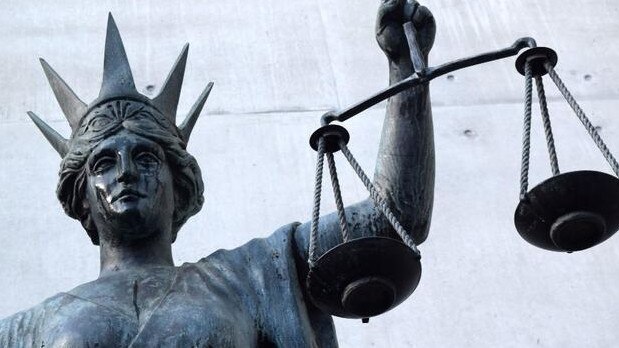Why ASF17 should stay: ‘Iran regime could topple’
Lawyers representing an Iranian man who has resisted efforts to deport him have argued he should be freed from immigration detention, declaring the instability in the Middle East raised the possibility Iran’s regime ‘could topple’.

Lawyers representing an Iranian man who has resisted efforts to deport him have argued he should be freed from immigration detention, declaring the instability in the Middle East raised the possibility Iran’s regime “could topple”.
The barrister representing the man, known as ASF17, Lisa De Ferrari, said her client would prefer to be sent to war torn Gaza rather than Iran because of his bisexuality, in a landmark High Court case that could trigger the release of up to 200 non-citizens resisting their removal.
The federal government has fought against his release into the community, with Solicitor-General Stephen Donaghue warning that if the court rules that detaining non-citizens who refuse to co-operate is unlawful it would turn the “Federal Circuit Court into a refugee tribunal”.
The case threatens to strike down a second legal pillar supporting indefinite detention following the watershed NZYQ decision in November, which triggered the release of 152 non-citizens with no prospects of being removed.
Ms De Ferrari sought to undercut the legal foundation supporting her client’s detention, arguing the federal government was holding him in the hopes that he would one day change his mind about returning to Iran and he was effectively being asked to jump from a boat into the sea to “swim with the sharks”.
She argued that her client should be granted a bridging visa, accusing the government of detaining him for six years while waiting for him to reconsider. “The Middle East is very unstable, the Iranian regime may topple – who knows,” she said.
Ms De Ferrari also argued that her client’s conduct by refusing to co-operate with efforts to return him was not an attempt to “manipulate” his migration outcome.
“I don’t accept that is manipulating the system,” she said.
“If the limit is reached and habeas goes, it doesn’t mean you have manipulated the situation so that you’re a free person in the community with all the rights of someone with a visa.”
Dr Donaghue disputed Ms De Ferrari’s assertion that the federal government had “straight jacketed itself” by refusing to consider removing ASF17 to a third country, arguing that it would create “diplomatic tensions and risks of refoulement”.
He cautioned against allowing detainees to be released on the grounds that they hold a “genuine fear” of suffering harm if returned to their country of citizenship, when a protection finding had not been made. He also reasoned that it would encourage detainees who are “bloody mindedly determined to stay” to resist their deportation.
“A sufficiently intransigent person who says I have been in immigration detention for a long time will think if I wait out the government a bit longer they will grant me a visa,” he said.
Barrister Craig Lenehan argued against the application of a “blanket rule regarding non-co-peration”, after lawyers for another non-citizen, known as AZC20, were granted permission to intervene in the ASF17 case.
Mr Lenehan, on behalf of the Human Rights Law Centre, argued that indefinite detention was unlawful and a person’s reasons for refusing their removal should be considered, after the court found in favour of their client in November.
The constitutional challenges to indefinite detention prompted the Albanese government to attempt to ram through emergency removal legislation that will give Immigration Minister Andrew Giles powers to force non-citizens to leave the country and bar arrivals from entire nations. The bill has come under sustained criticism over fears it could be used to deport thousands of people on bridging visas and to reverse protection findings.
The Parliamentary Joint Committee on Human Rights, which includes five Labor MPs, found the bill “limits numerous human rights” by forcing a person to return to a country where they fear harm and imposing minimum mandatory sentences, in its human rights scrutiny report.
The committee suggested amendments to limit the impact on human rights, also highlighting concerns about possible breaches of the “right to protection of the family and … the child”.
The High Court will consider the arguments.





